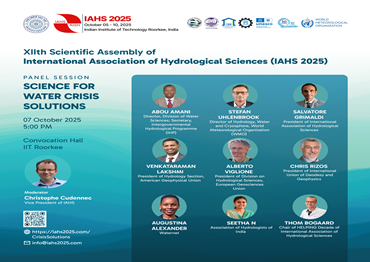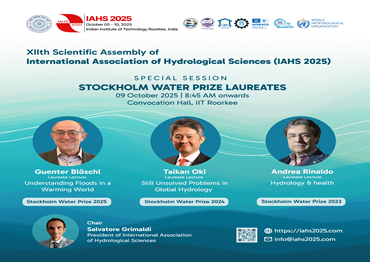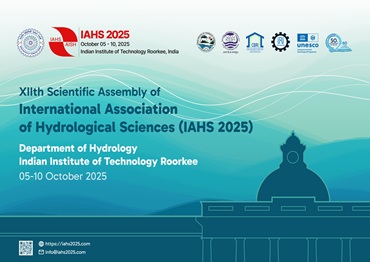Advances in Assessment and Management of Groundwater Resources
Side Event
Advances in Assessment and Management of Groundwater Resources
About Event:
Sunday, October 05, 2025 (9:00-18:00) Timing (IST)
Integrated Approaches for Groundwater Exploration
Content: Introduction to modern techniques combining geophysical, remote sensing, and hydrogeological methods to identify potential aquifers. Emphasis on how integrated datasets improve accuracy and reduce exploration uncertainties.
Monitoring and Assessment of Groundwater Resources
Content: Methods for measuring groundwater levels, recharge, and extraction using field observations, sensors, and satellite data. Approaches to building reliable groundwater databases for sustainable management.
Hydro-Biogeochemical Processes in Groundwater Systems
Content: Understanding the chemical, biological, and geological interactions that influence groundwater quality. Case studies on contaminant transport, nutrient dynamics, and natural attenuation processes.
Coastal Aquifer Dynamics and Submarine Groundwater Discharges
Content: Processes governing seawater intrusion, salinity management, and submarine groundwater interactions and influences. Strategies for managing fragile coastal aquifers in the face of climate change and over extraction.
Numerical Modelling of Groundwater Systems
Content: Basics of conceptualization, calibration, and application of groundwater flow and transport models. Demonstration of how models support decision-making in resource allocation and pollution control.
Artificial Intelligence, Machine Learning, and Optimization in Groundwater Management
Content: Application of data-driven techniques for predicting groundwater availability, contaminant migration, and aquifer response. Optimization tools for sustainable allocation and pumping strategies.
Integrated Strategies for Sustained Groundwater Resources
Content: Frameworks for combining policy, technology, community participation, and scientific tools. Case studies on integrated management approaches for improved resilience and long-term sustainability.
Expert Name:
- Prof. Mandalagiri S. Mohan Kumar ms.mohankumar@gmail.com
- Prof. Elango Lakshmanan elango34@hotmail.com
- Dr. YRS Rao yrsrao@gmail.com
- Prof. Rajendra Prasad Patury rpatury@yahoo.com
Prerequisites and Focus Group:
- Master Degree in the relevant domains
- PhD Students are encouraged to join the training
Maximum Number of Participants:
- 30 Early-career Researchers will be selected.

















